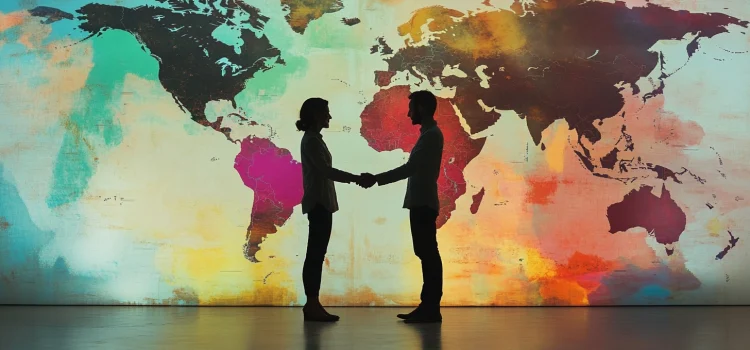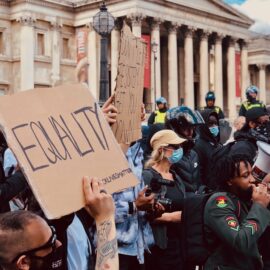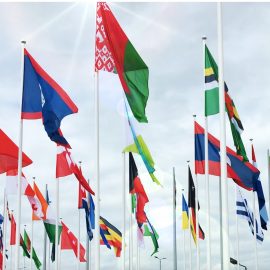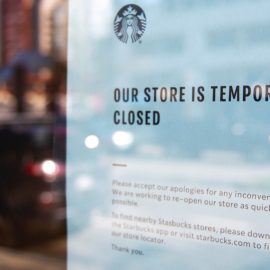

This article is an excerpt from the Shortform book guide to "The Rational Optimist" by Matt Ridley. Shortform has the world's best summaries and analyses of books you should be reading.
Like this article? Sign up for a free trial here.
Why is trade important to society? How does trade promote trust?
Trade fosters a stable society based on transparency, accountability, and respectful interaction between individuals and groups. In particular, Matt Ridley says that trade promotes trust and cooperation, as well as strengthens free political systems.
Continue reading to learn more about the importance of trade.
Trade Promotes Trust
Ridley writes that free exchange isn’t just an economic activity; it’s a potent force that promotes trust, cooperation, and goodwill among humans—contributing to social cohesion and harmony.
According to Ridley’s explanation of the importance of trade, exchange and trade create trust and boost relationships—even among strangers. This is because trade thrives on fairness, mutual benefit, and repeat transactions. If you’re consistently dishonest in your exchanges, word will spread, and other traders will avoid dealing with you. That works against your self-interest as your opportunities for trade (and the benefits it brings) dry up.
Thus, the self-interest of profit and advantage in trade naturally encourages trading partners to be truthful and respectful with one another. Moreover, the necessity to forge new partnerships calls for you to expand your good reputation outside immediate kin and into an extensive network.
| The McDonald’s Peace Theory Other scholars and writers have explored the idea that free trade acts as a powerful cohesive force between societies. Author Thomas Friedman is a proponent of what he terms the “McDonald’s peace theory,” noting that no two countries with McDonald’s franchises have ever gone to war with each other. This theory, first put forward by Friedman in his 1999 book The Lexus and the Olive Tree, illustrates a broader point about economic interdependence: Countries that are closely integrated into the global economy (evident by them having McDonald’s franchises) are less likely to engage in conflict with one another because war would disrupt their economic stability and growth. However, recent events have cast some doubt on the theory. Observers point to the conflict between Armenia and Azerbaijan over the Nagorno-Karabakh region—despite both nations having McDonald’s outlets. The conflict demonstrates that commercial interdependence may not always translate to real political stability. In addition, theories like the McDonald’s peace theory may oversimplify the complexities of international relations, which are deeply influenced by culture, history, and politics. |
Trade Promotes Political Freedom
Ridley posits that the trust and mutual respect that trade promotes also bolsters political freedom. Through trade, people see the mutual benefits of cooperation over conflict, which can translate into a greater willingness to resolve political or social conflicts through dialogue and compromise rather than coercion or violence. These are cornerstone values in democratic societies.
(Shortform note: Some writers disagree with Ridley, arguing democracy and capitalism aren’t inherently linked. They note that capitalist economies can function under many different systems of government, from open and liberal democracies to full-fledged autocratic states. Moreover, some of the excesses and problems of capitalism can delegitimize democratic states when they fail to effectively address these issues. When unchecked capitalism leads to severe income inequality, concentrated corporate power, insufficient social welfare, and environmental degradation, democratic governments that can’t mitigate these issues risk seeing their citizens lose faith in the democratic system’s ability to ensure fairness and equitable opportunity.)
Ridley also writes that in a thriving, open economic system, wealth (and thus, economic power) is typically more dispersed, leading to a diffusion of political power. For example, in a market town where multiple small businesses flourish, wealth is distributed among many entrepreneurs and workers rather than concentrated in the hands of a few. This broad-based economic empowerment translates into a more democratic distribution of political power, with a larger proportion of the population having the means and incentive to participate actively in local governance and decision-making processes.
(Shortform note: In Capitalism and Freedom, Milton Friedman says that capitalism’s decentralized structure helps explain its connection to political freedom. According to Friedman, the uncoordinated and voluntary transactions of ordinary people are the linchpin of a well-functioning capitalist system. Millions of individual buyers and sellers make decisions about which goods and services they require to satisfy their needs. He writes that this economic freedom acts as an important check against the power of political authorities because it represents a sphere of life that’s not controlled by the government.)

———End of Preview———
Like what you just read? Read the rest of the world's best book summary and analysis of Matt Ridley's "The Rational Optimist" at Shortform.
Here's what you'll find in our full The Rational Optimist summary:
- The connection between free trade and cultural evolution
- Why Matt Ridley defends the use of fossil fuels
- Why foreign aid can’t fix developing nations






